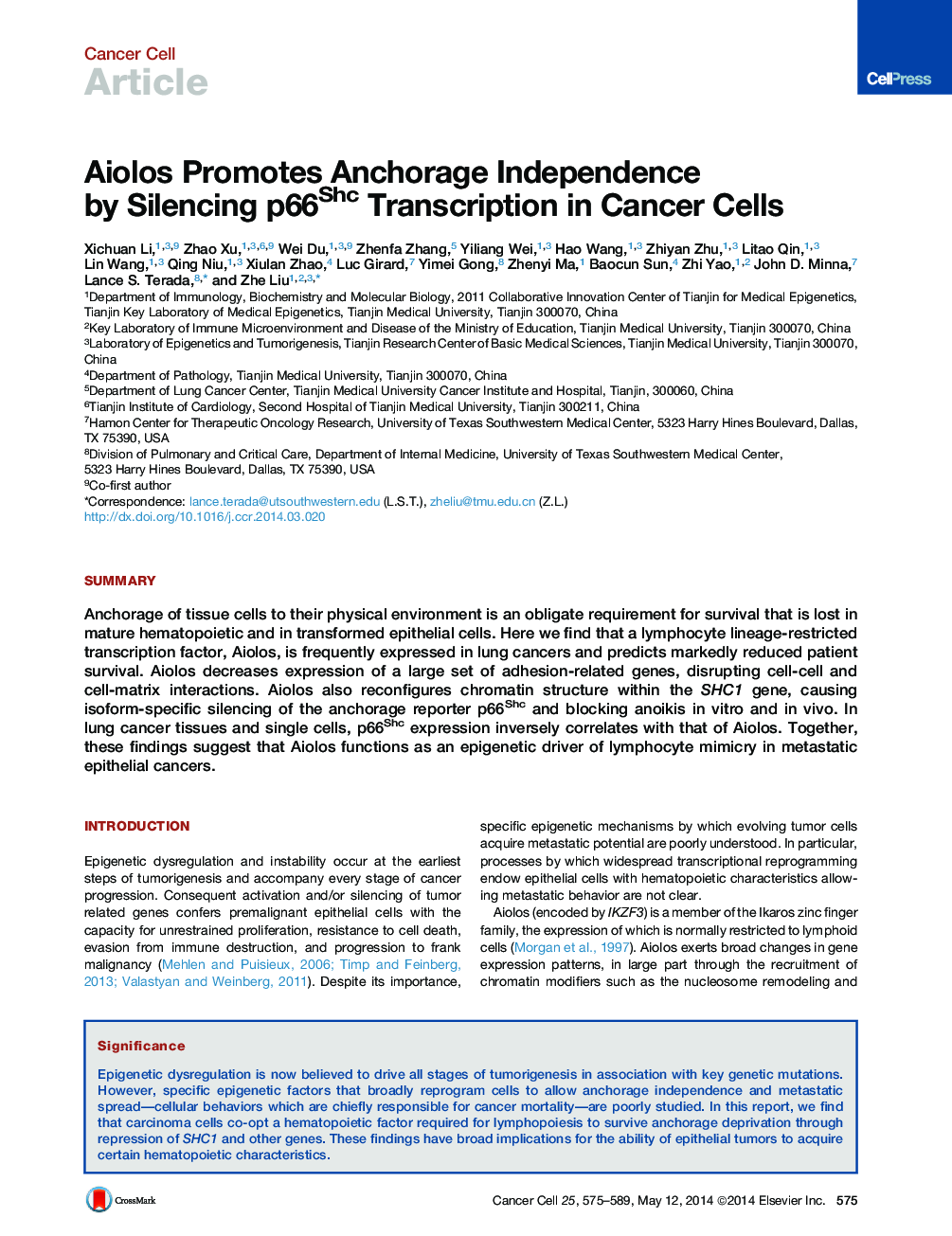| Article ID | Journal | Published Year | Pages | File Type |
|---|---|---|---|---|
| 2108024 | Cancer Cell | 2014 | 15 Pages |
•Aiolos downregulates multiple cell-cell and cell-matrix adhesion genes•Aiolos epigenetically silences p66Shc and promotes metastatic behavior•p66Shc correlates inversely with Aiolos in human lung tumors•Expression of Aiolos worsens clinical outcome in subjects with lung cancer
SummaryAnchorage of tissue cells to their physical environment is an obligate requirement for survival that is lost in mature hematopoietic and in transformed epithelial cells. Here we find that a lymphocyte lineage-restricted transcription factor, Aiolos, is frequently expressed in lung cancers and predicts markedly reduced patient survival. Aiolos decreases expression of a large set of adhesion-related genes, disrupting cell-cell and cell-matrix interactions. Aiolos also reconfigures chromatin structure within the SHC1 gene, causing isoform-specific silencing of the anchorage reporter p66Shc and blocking anoikis in vitro and in vivo. In lung cancer tissues and single cells, p66Shc expression inversely correlates with that of Aiolos. Together, these findings suggest that Aiolos functions as an epigenetic driver of lymphocyte mimicry in metastatic epithelial cancers.
Graphical AbstractFigure optionsDownload full-size imageDownload high-quality image (180 K)Download as PowerPoint slide
